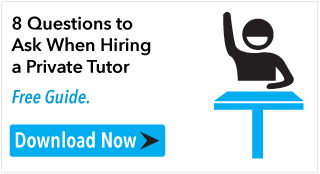Getting a high score on the ACT or SAT can be the difference between getting admitted to your preferred college or university or getting rejected. While certain...
5 Tips from an Elite ACT Tutor

So you're getting ready to take the ACT! That's great! Good luck! Here are 5 tips to help you do your best on ACT exam day:
Tip #1
Be confident, yet just a tiny bit paranoid. That slight edge of paranoia will help you not to underestimate the ACT. The ACT has 4 sections: English, Math, Reading, and Science, plus an optional written essay component. You've been studying English, math, reading, science, and writing for years and years, so you should be well prepared, right? Well, yes and no. Your background knowledge in each subject is very important and will help you on the test. However, the test makers will often try to lull you into a sense of false security. To do so, over the years the makers of the ACT have developed some rather slippery tricks to try to get you to make mistakes even on topics you're very familiar with. Which leads us to the next tip.
Tip #2
Get very familiar with the test format well in advance of test day. Take a practice test. Take two! The more the better. As you take each practice test, you'll familiarize yourself more and more deeply with how the ACT approaches each of the 4 main sections. Work to find your personal best approach for each individual section. An approach that works well for one section may be disaster for another. For instance, you may find that reading the passage before the questions works very well for the Reading section, but slows you down way too much in the Science section. Each section has its own quirks, its own set of common traps and misdirections that try to lead you astray from the right answers, bog you down in unnecessary work, and slow you down. Learn how to spot these common pitfalls and avoid them, and your accuracy rate and pacing should improve substantially.
Tip #3
Get to know your calculator and its abilities. The makers of the ACT state that the problems on the Math section can be solved without a calculator. That's true, but remember that many of the problems can be solved much more easily with a calculator, especially a graphing calculator. Make sure that your calculator is a model approved for use on the ACT and that it has fresh batteries. Keep in mind that part of knowing the abilities of your calculator is being able to recognize when it is not the fastest means of finding a solution. Sometimes a quick sketch or simple process of elimination can get you to the right answer faster.
Tip #4
Learn how to conserve your energy. When you take the ACT, you'll be at the test center more than 4 hours, including breaks. Don't do more than necessary to answer each question. Lots of practice will enable you to tune out distractions and unimportant information so that you can focus on the material that's most relevant. If you're working on a math problem, remember that you don't have to show every step of your work like you would in school. When practicing for English, try to streamline and simplify the rules of grammar and punctuation so that you can apply them quickly and directly.
Tip #5
Use all of the resources available to you. Practice ACT questions and tests are available at the official ACT website. To get even more practice and preparation, there are many other resources available. Schools often provide practice materials. You can search at your local library or bookstore, or online, to find books, flashcards, software, and apps for additional ACT practice. Another important resource you may want to use is a tutor. Individualized, one-to-one tutoring can help you approach your full potential on the ACT.

